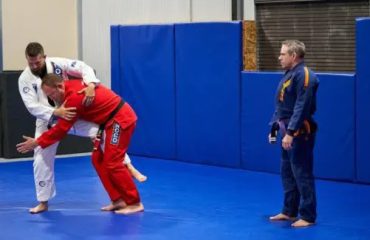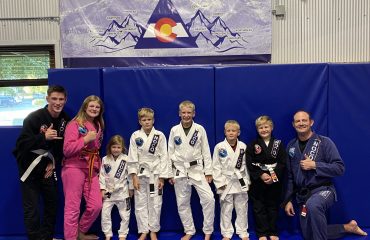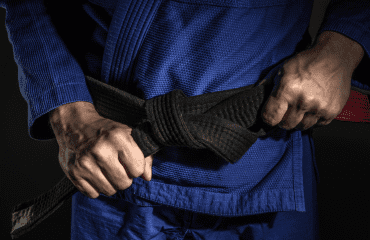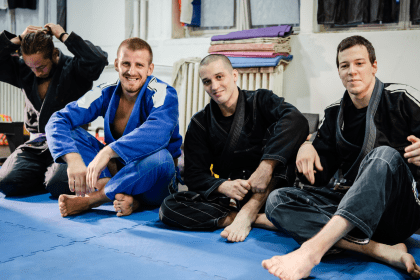
When it comes to martial arts, Jiu-Jitsu schools offer a unique blend of physical fitness, mental discipline, and practical self-defense skills. These schools provide an inclusive environment where students of all ages and backgrounds can develop their confidence while mastering techniques that are both effective and empowering. At NOCO Jiu Jitsu and Self Defense in CO, we believe that choosing the right school is crucial to unlocking the full potential of what Brazilian Jiu Jitsu (BJJ) has to offer.
Whether you’re seeking to improve your fitness, learn self-defense, or build lifelong friendships, the right academy will guide you every step of the way.
What Makes Jiu-Jitsu Schools Stand Out in the World of Martial Arts?
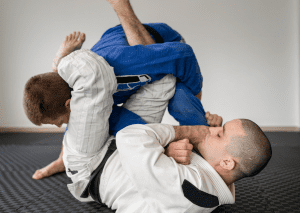
How Do Jiu-Jitsu Schools Differ from Other Martial Arts Schools?
Unlike other disciplines such as Muay Thai, Jiu Jitsu focuses on leveraging technique over strength. This makes it accessible to individuals of all sizes and skill levels. The emphasis on ground fighting sets BJJ apart, as students learn to control opponents through leverage and precise movements rather than brute force.
What Role Do Head Instructors Play in Student Development?
The presence of skilled head instructors is a hallmark of quality Jiu-Jitsu schools. These instructors, often black belts with years of experience, provide personalized guidance. Their role is not only to teach techniques but also to instill values like discipline, respect, and perseverance. Learning under seasoned mentors ensures a well-rounded learning experience for all students.
Why Is Brazilian Jiu-Jitsu a Preferred Art for Self-Defense?
Brazilian Jiu-Jitsu, rooted in the teachings of pioneers like Carlos Gracie Jr, is widely regarded as one of the most effective forms of self-defense. It equips practitioners with skills to neutralize threats in close-quarters combat. By mastering submissions, escapes, and defensive positions, students gain the confidence to handle real-life situations safely and effectively.
How Does Training in Jiu-Jitsu Build Confidence and Self-Reliance?

Engaging in Jiu-Jitsu training fosters a unique combination of physical and mental growth. The practice demands focus and problem-solving, helping students build resilience and self-discipline. Over time, the ability to overcome challenges on the mat translates to confidence in everyday life.
Students often find themselves setting goals, tackling obstacles, and celebrating victories, no matter how small. This process instills a deep sense of pride and self-reliance, reinforcing their belief in their abilities.
What Skills Can Students Expect to Learn in Jiu-Jitsu Schools?

What Ground Fighting Techniques Are Essential for Self-Defense?
The foundation of BJJ lies in mastering ground fighting techniques. Students learn submissions like arm bars and chokes, as well as sweeps and escapes. These skills are essential for neutralizing threats when standing confrontation is no longer an option.
How Do Training Partners Contribute to Skill Development?
Training partners play a pivotal role in honing a student’s skills. By practicing with peers of varying skill levels, students gain exposure to diverse techniques and strategies. The mutual respect and camaraderie developed during practice create a supportive learning environment.
What Are the Key Components of a Comprehensive BJJ Curriculum?
A well-structured curriculum includes a mix of techniques, situational drills, and sparring sessions. From beginner fundamentals to advanced strategies, the program is designed to ensure steady progress. Many schools, including NOCO Jiu Jitsu and Self Defense, emphasize a step-by-step approach to help students build a strong foundation.
How Do Jiu Jitsu Schools Cater to Different Age Groups and Skill Levels?

What Are the Benefits of Programs for Kids?
For kids, Jiu-Jitsu classes provide more than just physical activity. They teach essential life skills like focus, teamwork, and discipline. Parents often note improvements in their children’s confidence and behavior after joining a program.
How Do Schools Tailor Training for Adults?
Adults benefit from programs that cater to their unique goals, whether it’s fitness, self-defense, or competition. Classes are structured to accommodate varying skill levels, ensuring everyone feels challenged yet supported.
Can Beginners and Advanced Students Train Together Effectively?
Many schools adopt a mixed-class format where beginners and advanced students train side by side. This setup fosters mentorship, as experienced students share insights with newcomers. It also helps beginners learn faster by observing advanced techniques in action.
How Do Jiu-Jitsu Schools Minimize the Risk of Injury During Training?

Safety is a top priority in Jiu-Jitsu schools. Proper warm-ups, the use of the gi, and an emphasis on technique over force help reduce the risk of injury. Instructors guide students to practice at a pace that suits their abilities, ensuring a safe and enjoyable experience.
How Does Jiu-Jitsu Promote a Sense of Community and Belonging?

Jiu Jitsu fosters a strong sense of family and community. From the bonds formed with training partners to the support system created by the school, students feel a genuine connection. Events like seminars and competitions unite practitioners from across continents, further strengthening the sense of belonging.
What Should You Look for When Choosing a Jiu-Jitsu School?

How Can You Assess the Quality of an Instructor?
An instructor’s credentials and teaching style are key factors. Look for someone who is approachable, skilled, and committed to their students’ growth.
Why Is the Academy’s Atmosphere Important for Students?
A welcoming and inclusive academy atmosphere ensures students feel comfortable and motivated. The right environment fosters learning and personal growth.
What Factors Determine the Right School for Your Goals?
When selecting a school, consider its curriculum, location, and class schedule. Take note of trial class options to ensure the school aligns with your personal goals.
Are You Ready to Experience the Benefits of Jiu-Jitsu Firsthand?

Visit NOCO Jiu Jitsu and Self Defense to explore their programs, designed for individuals of all ages and skill levels. Whether you’re a beginner or a seasoned practitioner, there’s no better time to start than today. Sign up for a trial class and take the first step toward building confidence, improving fitness, and mastering self-defense.
At NOCO Jiu Jitsu and Self Defense, we’re proud to be part of a global community dedicated to personal growth through Brazilian Jiu-Jitsu. From learning essential self-defense skills to building lasting friendships, the benefits of Jiu-Jitsu schools extend far beyond the mat. Take that next step, and let’s continue shaping a future filled with strength, resilience, and confidence.
Frequently Asked Questions:
- What makes Jiu-Jitsu schools unique compared to other martial arts disciplines?
Jiu Jitsu schools focus on leveraging technique over strength, emphasizing ground fighting skills and accessibility for people of all sizes and skill levels. - Why is Brazilian Jiu-Jitsu considered an effective form of self-defense?
Brazilian Jiu-Jitsu teaches practical techniques like submissions, escapes, and defensive positions to neutralize threats in close-quarters combat. - What role do head instructors play in Jiu-Jitsu schools?
Head instructors, often black belts, provide personalized guidance, instill discipline, and create a supportive environment for learning and growth. - Can Jiu-Jitsu training help build self-confidence?
Yes, Jiu-Jitsu training promotes self-discipline, problem-solving, and resilience, which naturally boost self-confidence and self-reliance over time. - What are the key skills students learn in Jiu-Jitsu schools?
Students master ground fighting techniques, improve physical fitness and learn valuable self-defense strategies through structured training programs. - Are Jiu-Jitsu classes suitable for kids and adults?
Yes, Jiu-Jitsu schools offer tailored programs for kids to develop focus and discipline, as well as for adults aiming to improve fitness or learn self-defense. - How do Jiu-Jitsu schools minimize the risk of injuries?
Safety is prioritized through proper warm-ups, use of the gi, and emphasizing technique over force. Instructors guide students at a pace suitable for their skill level. - What should I look for when choosing a Jiu-Jitsu school?
Key factors include the instructor’s credentials, the academy’s atmosphere, and the curriculum’s alignment with your personal goals. - How do Jiu-Jitsu schools foster a sense of community?
Jiu Jitsu schools build strong relationships through training, events, and competitions, creating a supportive and inclusive environment for all students. - Is NOCO Jiu Jitsu and Self Defense a good place to start learning Jiu-Jitsu?
Yes, NOCO Jiu Jitsu and Self Defense offers comprehensive programs for individuals of all ages and skill levels, with experienced instructors and a welcoming atmosphere.
